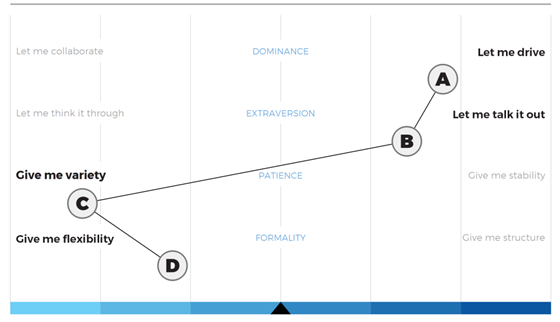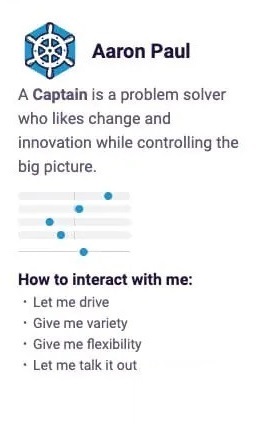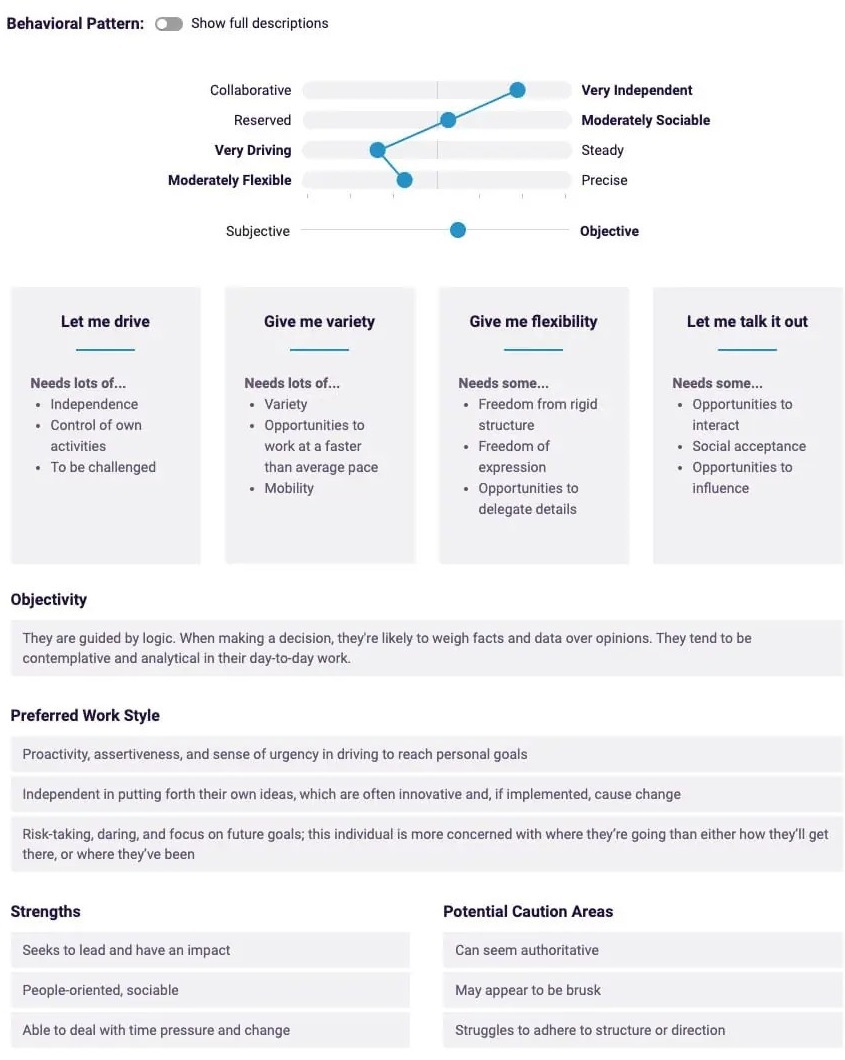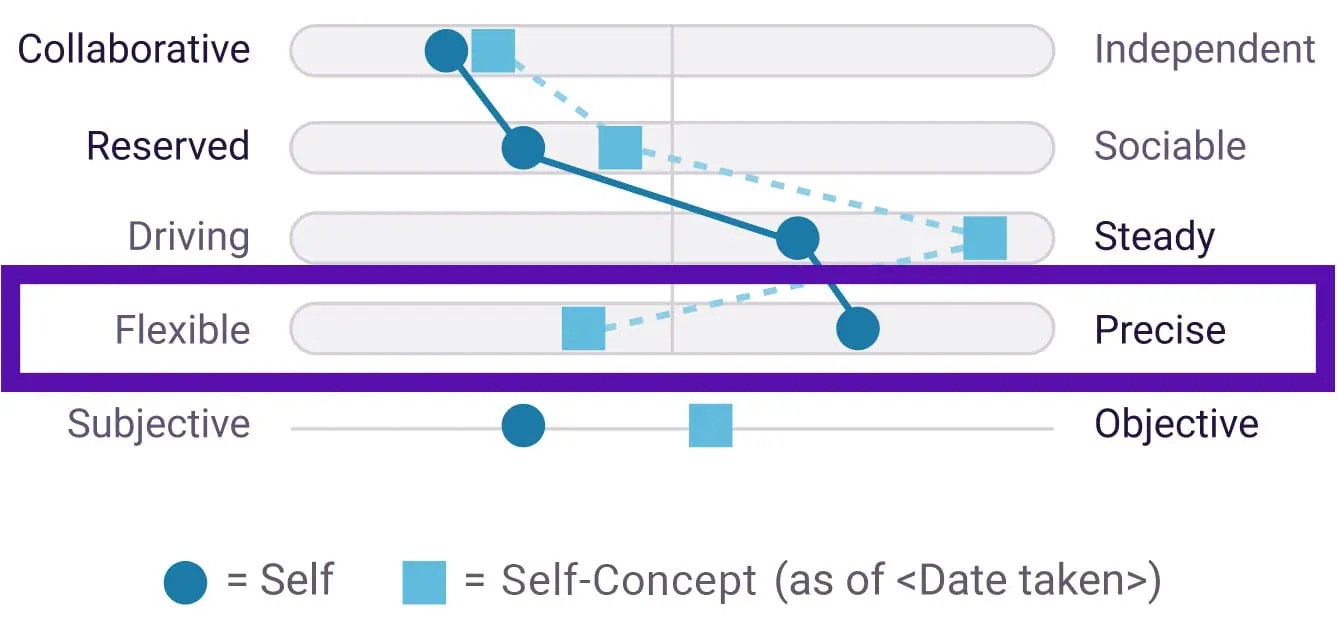Predictive Index Overview
Founded nearly seven decades ago by Arnold Daniels, the Predictive Index (PI) embarked on a visionary quest: Better Work, Better World. The Predictive Index is about deciphering the underlying factors that drive workplace behavior and then harnessing this understanding to fuel the enthusiasm and productivity of employees, utilizing sophisticated software that combines wisdom, guidance, and data. This approach enables professionals to excel as productive, engaged, and self-aware individuals.

Patterns
At the core of the Predictive Index software is the PI Behavioral Assessment™️. The most significant outcome of this assessment is a "pattern." This pattern comprises various Factors that illuminate the intensity and impact of key behavioral drives, crucial for predicting and comprehending behaviors in the workplace.
Person Snapshot
Upon completing the Behavioral Assessment™️, an individual's results are summarized in what is called a "Person Snapshot." This snapshot is accessible through the PI platform and provides a detailed view of the individual’s Reference Profile, pattern, preferred work style, strengths, potential caution areas, and the combinations of their Factors.


Self and Self-Concept
The insights offered by PI predominantly utilize what is termed the Self Awareness pattern. This pattern represents an individual's truest self—their inherent workplace behaviors, identified during the assessment as behaviors the individual believes truly represent them. Occasionally, another pattern called Self-Concept emerges, reflecting the behaviors individuals feel they are expected to display by others.
The alignment—or lack thereof—between an individual’s Self and Self-Concept can reveal much about their interaction with workplace expectations. A close alignment suggests minimal effort is needed to meet these expectations, whereas significant differences might indicate areas where an individual feels pressured to adapt.
Application of Insights
The Predictive Index emphasizes the importance of recognizing discrepancies between Self and Self-Concept not just for insight, but as a basis for meaningful dialogue. These discussions can foster self-awareness, encourage personal growth, and help individuals better understand their roles and team dynamics. For example, if someone’s Self favors precision (Formality) but their Self-Concept leans towards flexibility, it highlights a potential area for adjustment that could affect their performance and satisfaction.
Engaging in these conversations is crucial. They are not about making assumptions but about exploring and enhancing an individual’s role comprehension and their contributions to their team and the overall workplace environment.
